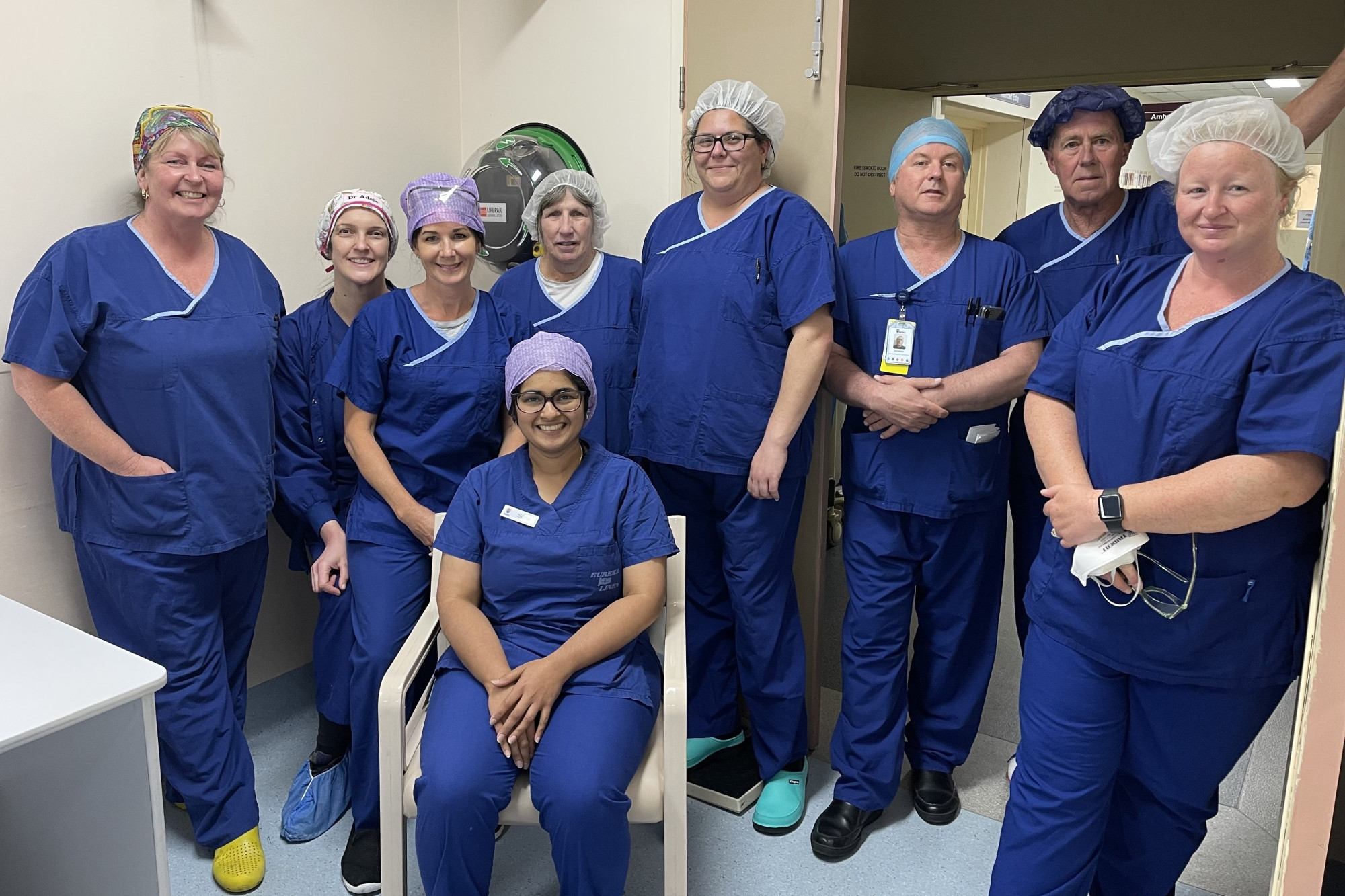General News
11 December, 2023
Nearly 300 more surgeries done at MDHS in the last 12 months
With wait times for elective surgeries going up across the country, the Maryborough District Health Service (MDHS) has been working to alleviate the burden in the region — helping more than 200 people in the past year. As part of its involvement...

With wait times for elective surgeries going up across the country, the Maryborough District Health Service (MDHS) has been working to alleviate the burden in the region — helping more than 200 people in the past year.
As part of its involvement in the State Government’s Planned Surgery and Reform Project — a program designed to improve access to important care — and, the Grampians Region Health Service Partnership, MDHS has performed an additional 270 surgeries in the last 12 months.
These operations, undertaken on top of the health service’s regular waitlist, have been made possible due to the inclusion of a sixth day of surgery known as Super Saturdays, which was first introduced in 2017 to reduce wait times.
Since then, the weekend surgical blitz has helped 1200 people get off the waitlist in Ballarat and into the Maryborough Hospital theatre to receive the surgery they need.
According to MDHS executive director nursing, midwifery and allied health Robyn Wilson, it is an impressive result for a small regional service.
“Any inroads we can make into surgical waitlists has a direct and positive impact on health outcomes everywhere,” she said.
“Redirecting patients on a planned surgery waitlist to MDHS is obviously a great result for that individual. It also frees up the team in Ballarat to perform other surgeries, improving outcomes for people across the region.”
“Our focus is on how we can better meet the needs of people in our communities collectively and we are consistently looking at ways we can find even more efficiencies.”
A new report released last week by the Australian Institute of Health and Welfare (AIHW) states that elective surgery wait times in the country have hit a record high compared to the last 20 years.
“Public hospitals [during 2022-23] worked to catch up following pandemic-related delays that arose due to disruptions in the health system,” an AIHW statement said.
Across Victoria, there are 68,941 people on the waitlist as of September 2023 — with 78.2 percent of planned surgery patients treated within the recommended time.
MDHS had identified the possibility that wait times would soar, even before COVID-19, and Ms Wilson said the approach the service is employing now will also reduce some of that stress in the region.
“We knew this would be a problem, which is why we started Super Saturdays, so we’ve been able to keep pushing through and we’ve been able to take on patients,” she said.
“Our system at the moment is about prioritising people who live locally but it also comes down to the clinical urgency of the treatment — this is also why the Grampians partnership is very helpful for everyone.
“If we can pick up people from the waitlist, including those in the wider Grampians region, then if our locals need a more serious or complex surgery, there will be more space at Ballarat for them to get slotted in to because MDHS isn’t equipped to do those critical surgeries anyway — if we can pick up certain things, they can focus on doing other surgeries.”
For people currently waiting to get their surgeries, Ms Wilson has an important piece of advice.
“Stay in touch, if you haven’t heard back make sure you try to connect with the healthcare provider that is [managing your referral] to get an update,” she said.
“You should also stay as well as you can. The healthier you are, which is hard if you need surgery and can be difficult, but the better the outcome.
“While you’re waiting, continue healthy habits and that can be challenging if you’re not mobile but [small things can help too].”